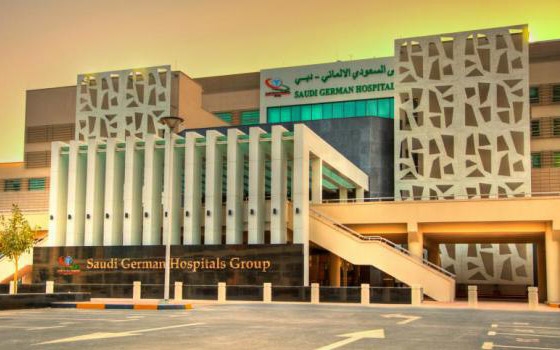An influx of investments in health care real estate is injecting growth into the MENA region’s health sector, driven mainly by Saudi Arabia and the UAE.
The UAE health care market is projected to expand by almost 100 percent this year alone, becoming an AED 44 billion industry by 2015, according to the Dubai Chamber of Commerce and Industry. Meanwhile, forecasts indicate exponential growth for the GCC region, which will boom into a $ 60 billion health sector over the next decade.
In the latest milestone for the UAE’s spiraling health care real estate, Dubai is now home to the MENA region’s largest private mega hospital.
This comes after it was successfully designed, built and equipped by IHCC, one of the region’s leading providers of design build turnkey solutions that is specialized in health care, education and mixed use projects.
The landmark project was custom-built for Emirates Health Care Development Company at a cost of $ 115 million. It has a capacity of 315 beds, with over 100 doctors and 600 other employees serving up to 2,000 patients a day. The project demonstrates the towering levels of investment, putting the UAE firmly on course for its goal of becoming an international capital of medical tourism.
Sultan Batterjee, CEO of IHCC, expressed optimism that the region’s health care real estate sector is set for even greater milestones and said: “As the niche market of medical real estate grows, so do the expectations of our clientele,” he said.
Batterjee added: “That is why we have utilized state-of-the-art ‘Design Build’ turnkey solutions that are specialized in health care, leveraging on our smart synergies with some of the world’s top innovators.”
He said:“We strongly believe that health care consumers in the UAE, GCC and MENA region as a whole deserve the highest international standards as evidenced by our quality control in building and planning in this iconic project.”
Illustrating the growing role played by medical real estate in delivering a healthier economy, international consultancy firm Deloitte estimates that the health sector’s contribution to the UAE’s GDP will grow from 2.8 percent to 3.4 percent by next year, and this pattern is set to be gradually reflected across the region.
Batterjee, however, was quick to emphasize that new hospitals are not the only drivers of growth in medical real estate: “IHCC has been actively involved in designing , constructing and equipping medical universities, hospitals, medical towers, research facilities and centers of excellence, among other projects; because to us education is a crucial investment in the future health of the region. In addition, we have put affordable and socially-responsible solutions within the reach of communities in the Middle East and Africa. This is not about increasing revenues alone, because health is the ultimate wealth.”
In a signal of the ever-widening diversity of services within the region’s medical institutions, the new hospital’s project, which is designed and build by IHCC includes facilities like orthopedic and trauma surgery, cardiology/cardio thoracic surgery, oncology, nuclear medicine, radiotherapy, neurosurgery, plastic surgery, oral and maxillofacial surgery among others.
It is envisaged that the success of this project will add to the growing demand for turnkey solutions, in which clients simply “turn the key” and move into their finished and furnished buildings. For instance, IHCC handled all stages of this project under one umbrella, encompassing master planning, facility visioning and planning, architectural design, detail design, medical technology strategy and planning, construction and project management, supply and installation of medical equipment and others.
The company is also championing innovative ways of carrying out maintenance and renovation work while avoiding disruptions to the client’s everyday operations, in order to save time, finances and, above all, lives.
Arab News
21 March
























































